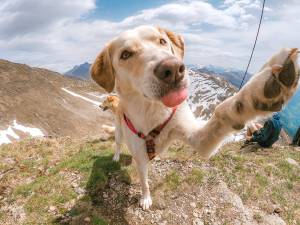
Understanding the Importance of Using a Harness
Before we delve into the process, it’s important to understand why using a harness is beneficial for your dog. Unlike collars, harnesses distribute the pressure across a larger area of the dog’s body, reducing the risk of neck injuries. They also provide better control and help prevent your dog from slipping out of the harness, which can be particularly important during walks or outdoor activities. Moreover, harnesses can be especially useful for dogs that tend to pull on their leashes, as they offer greater support and discourage pulling behavior.
Getting Your Dog Comfortable with the Harness
Before attempting to put the harness on your dog, it’s crucial to help them become comfortable with it. Start by allowing your dog to sniff and investigate the harness. Offer treats and praise to create positive associations. Once your dog is familiar with the harness, gently hold it against their body and reward them with treats and affection. Repeat this process until your dog shows no signs of discomfort or fear when the harness is nearby.
Putting the Harness On Your Dog
When it comes to actually putting the harness on your dog, patience and a calm demeanor are key. Begin by laying the harness flat on the ground and having your dog stand beside it. Next, gently guide your dog’s front legs through the designated loops on the harness. Ensure that the straps are not twisted and that the harness sits comfortably on your dog’s body. Once the harness is in place, fasten the buckles or clips according to the harness’s design. It’s important to check that the harness is snug but not too tight. You should be able to fit two fingers comfortably under the straps.
Adjusting the Fit
After securing the harness, take a moment to adjust the fit. Make sure the straps are not too loose or too tight. You should be able to slide a couple of fingers under each strap without difficulty, ensuring your dog’s comfort and freedom of movement. Additionally, check that the harness is not rubbing or causing any discomfort to your dog’s skin. Always monitor your dog’s behavior and body language to ensure they are comfortable and at ease with the harness on.
Practice and Positive Reinforcement
Like any new experience, practice and positive reinforcement are essential for helping your dog become accustomed to wearing a harness. Start with short sessions, gradually increasing the time your dog spends in the harness. Use treats, praise, and play to create positive associations with the harness. Additionally, engage your dog in activities they enjoy, such as going for a walk while wearing the harness. This will help them view the harness as a precursor to enjoyable experiences, making the process of putting it on easier over time.
In conclusion, putting a harness on your dog is a valuable skill that contributes to their safety and comfort during walks and outdoor activities. By understanding the importance of using a harness, helping your dog become comfortable with it, and utilizing patience and positive reinforcement, you can make the process of putting a harness on your furry friend a stress-free experience for both of you. With time, practice, and patience, you’ll find that putting on a harness becomes a seamless part of your routine, leading to many enjoyable adventures with your beloved companion.






